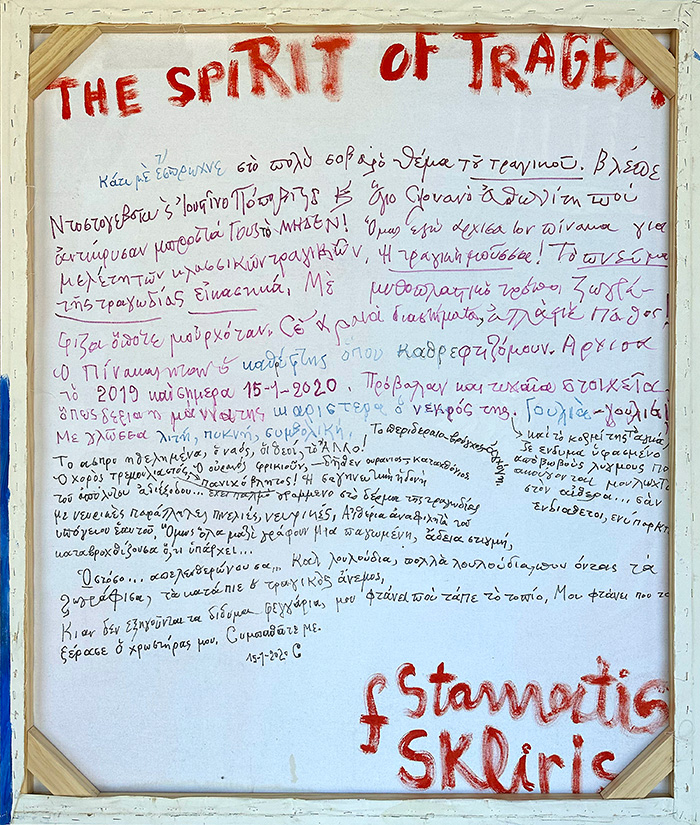"Antigone and the Spirit of Tragedy", acrylic on canvas, 2020, 39x47 inch
Antigone (Ancient Greek: Ἀντιγόνη) is an Athenian tragedy written by Sophocles in (or before) 441 BC and first performed at the Festival of Dionysus of the same year. The true tragic hero of the play Antigone is the main character, Antigone, who accepts her execution in retaliation for an unjust law she knowingly broke. Her loyalty is her greatest weakness but a virtuous weakness, making her a tragic hero. The conflict at the heart of the play is between Creon and Antigone. Creon believes that Polynices should not receive a proper burial due to his role in assaulting the city of Thebes. Antigone loves her brother and wishes his soul to find peace. She violates Creon's decree, burying Polynices. In death, Antigone looks forward to being reunited with her brother Polynices, her father, Oedipus, and her mother, Jocasta. She is intense, passionate, and full of love; sometimes to a fault; she feels a heaviness of duty to her family name and the Gods, and to her, they are the same; fearless and thoughtful, takes risks, and is quick to judge; empowered by her defiance, she is proud, sensitive, and open.


